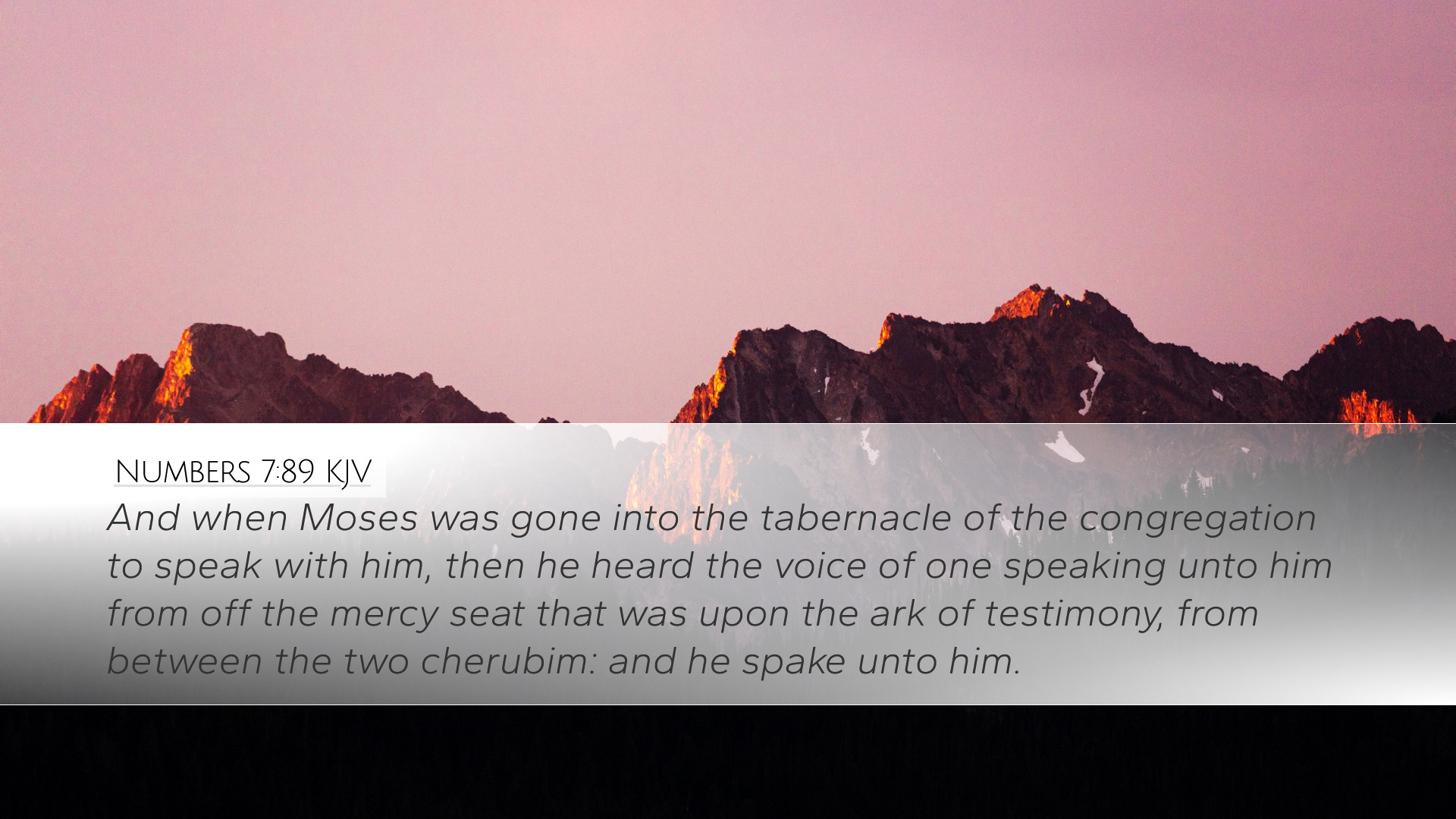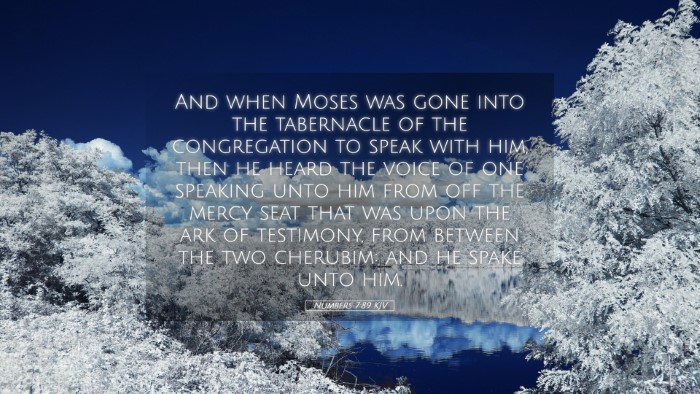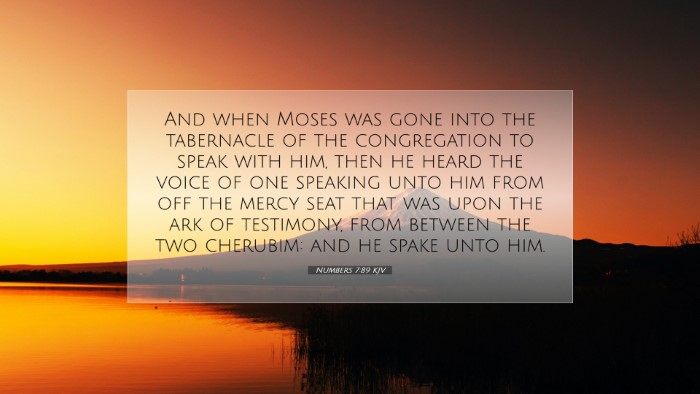Commentary on Numbers 7:89
Verse Text: "And when Moses went into the tabernacle of the congregation to speak with him, then he heard the voice of one speaking unto him from off the mercy seat that was upon the ark of the testimony, from between the two cherubims: and he spake unto him." (Numbers 7:89, KJV)
Introduction
This passage is significant as it conveys a moment of divine communication between God and Moses in the sacred setting of the tabernacle. This commentary seeks to summarize insights from esteemed biblical scholars, particularly Matthew Henry, Albert Barnes, and Adam Clarke. Their perspectives will elucidate the theological implications, historical context, and practical applications of this momentous event.
Theological Insights
Divine Communication: The act of God speaking to Moses from the mercy seat underscores the accessibility of God to humanity, specifically to His chosen leaders. Matthew Henry comments on the importance of the mercy seat being a place of atonement and reconciliation, reinforcing the idea that God communicates within the framework of mercy and grace.
Location of Revelation: The specific mention of "between the two cherubims" indicates the glorious presence of God resting upon the mercy seat. Albert Barnes highlights this localized presence as a manifestation of God’s glory, symbolizing the unique relationship between God and His people. The cherubim represent the divine guardianship and holiness of God, suggesting that any approach to the Holy One must be through reverence.
Contextual Background
In this chapter, the Israelites are engaged in the process of dedicating their offerings and setting up the tabernacle, which serves as the focal point of worship and divine interaction. Adam Clarke notes the meticulous structure and order surrounding the tabernacle, emphasizing that it serves not just as a physical location, but as a spiritual symbol of God’s covenant with Israel.
Historical Significance
This moment reflects the culmination of Israel’s journey through the wilderness, where God’s presence is profoundly felt. The early Israelite community depended on divinely transmitted instructions to navigate their identity as God’s chosen nation. The authoritative communication of God to Moses sets a precedent for subsequent leaders in Israel's history.
Moses acts as the mediator between God and the people, a theme that is critical throughout the Pentateuch. Barnes observes that this mediation foreshadows the ultimate mediation of Christ, situating the narrative within a larger biblical theology of salvation history.
Practical Applications
Approaching God: The way in which Moses converses with God illustrates the intimate access believers have to God's presence through prayer and worship. Pastors may use this text to encourage their congregations to seek divine guidance in times of decision-making, highlighting the importance of spending time in prayer and scripture.
The Role of Leadership: Just as Moses received direct communication from God, leaders in today’s church are called to seek divine wisdom for their communities. Clarke emphasizes that leaders should be men and women of prayer who earnestly seek to discern God’s voice amidst the distractions of the world.
Conclusion
The account found in Numbers 7:89 is not merely a historical record; it offers profound insights into the nature of God’s interaction with humanity, particularly through appointed leaders like Moses. As we analyze the layers of meaning within this passage, we are reminded that God desires to communicate with us, granting us access to His wisdom and guidance through the sacrificial love encapsulated in the mercy seat.
Thus, scholars, students, and pastors alike are invited to reflect on their personal relationship with God and the importance of seeking His voice in their lives, just as Moses did in the sacred precincts of the tabernacle.


